Here’s my list to of the ten best movies I screened in 2008.
I have to admit that I did not see one contemporary release that comes close to the quality and passion of these older films. And keep in mind that most of these classic movies were produced on modest budgets, never intended as studio blockbusters. These ten products of Hollywood’s golden age are what Hollywood used to do best: solid, unpretentious entertainment.
10. The Man From Down Under, (1943) starring Charles Laughton and Donna Reed. Billy Wilder once stated that Charles Laughton was the greatest living actor. Who am I to argue with the legendary director? Laughton was certainly methodical in his research. Tapped to star as Captain Bligh in MGM’s blockbuster Mutiny on the Bounty, (1935) Laughton went to the original London tailor shop that made the real Bligh’s uniforms and had them copied to wear as his wardrobe. Anything for a true performance. Here, Laughton brilliantly portrays a rough and alcohol sodden Australian soldier who adopts two Belgium orphans, rescuing them from the ruins of World War I. This could have been a dreadful exercise in melodrama, but Laughton’s acute commitment to the crude but sensitive Aussie character raises the movie to an unexpected emotional pitch. Robert Z. Leonard–real name Robert Zigler Leonard–directed this little gem. Leonard is one of those great studio directors who are sniffed at by film cultists because he didn’t have a “personal signature.” But Leonard’s signature, like the great Clarence Brown, was rock solid professionalism and the highest levels of craftsmanship.
9. Peg O’ My Heart, (1933) starring Marion Davies as a poor Irish lass who is forced to abandon her beloved father and live with snooty, wealthy relatives in the manor–and learn to be a lady. Davies is poignant and charming. She was a hugely gifted comedienne. Unfortunately, as William Randolph Hearst’s mistress she was never taken seriously. It didn’t help that Hearst financed her movies and insisted that she star in stiff dramatic period pieces that were unsuited to her natural comedic talents. Davies, a former Ziegfeld Girl, also sings and dances in this movie with magnetic energy. Once again, Robert Z. Leonard provides rock solid direction. Before he died, Orson Welles confessed that he had “done a dirty” to Marion Davies with his portrayal of the shrill and talentless Susan Alexander Citizen Kane. It’s impossible to know if Welles was truly contrite–he was always acting–but he spoke the truth. Citizen Kane destroyed a talented woman’s reputation for several generations. Only now is a new generation of movie-lovers beginning to appreciate Marion Davies incandescent screen persona.
8. Five Star Final, (1931) starring Edward G. Robinson, and Marian Marsh, Screenplay by Byron Morgan, directed by Mervyn Leroy. This amazing film delves into the squalid world of yellow journalism. Edward G. Robinson–real name Emanuel Goldenberg–plays a city editor who agrees to pursue a story, actually a family with a terrible secret, in order to increase circulation. Lives are shattered and spilled ink results in spilled blood. There’s great use of split screen to build tension during a telephone sequence, so next time you watch “24,” remember that this is an old and reliable device. Robinson, one of the great American film actors of all time, turns in a powerful and moving performance as a professional who sacrifices his soul and ethics for a story that should not be told. Mervyn LeRoy–real name probably Mervyn Levine–who got his start as a gag writer for silent star Colleen Moore, stays out of the way and allows his cast to work together and dramatize the moral vacuum that has been opened. The great Marian Marsh–real name, Violet Ethelred Krauth–is simply riveting. I saw this on TCM, and so far have not been able to find it on DVD or VHS. A buried treasure.
7. The Toll of the Sea, (1922) From a script by Hollywood’s greatest screenwriter, Frances Marion. Anna May Wong’s first feature role. She was just 17-years old. This was the first Hollywood feature shot in the new two-color Technicolor process. Anna May, Lotus Flower, rescues and falls in love with a shipwrecked American sailor. He promises to take her home. But the sailor’s friends discourage the love affair with a Chinese girl, and he takes off to America without Lotus Flower. Wong’s performance is beautifully modulated and deeply moving, especially for one so young. Wong matured into a great actress–she steals scenes from the flashy Dietrich in Shanghai Express simply by her riveting zen-like stillness. Sadly, Wong was doomed to star in B programmers where the plot required her to die rather than end up in a clincher with her Caucasian co-star.
6. The Easiest Way, (1931) starring Constance Bennett, Anita Page, Adolphe Menjou, Robert Montgomery, and the very young Clark Gable has a supporting role. This is a a smoldering, moral fable. Constance Bennett, an impoverished beauty, discovers that the easiest way to support her struggling family is to become mistress to the oily, and always tuxedoed Adolphe Menjou. But Bennett falls in love with the poor but honest Robert Montgomery. Ultimately, she has to choose between love, money, and a moral code that will allow her to sleep at night. Bennett was a huge star for a few years, but her diva-like behavior made enemies of studio executives and film crews alike. When Bennett’s star fell–sister Joan Bennett’s star ascended as Constance crashed–there were few who shed any tears. Constance Bennett fans usually cite the superb Hollywood or Bust or the overrated Topper–a one-joke film with terminal second act problems–as their favorite Constance Bennett films. But for yours truly, The Easiest Way is her most surprising and multi-layered performance. For an insightful look into the entire Bennett clan–talk about a family with tzuris–Self-Styled Siren has been blogging about sisters Constance, Joan, a bit on tragic Barbara, and toxic daddy Richard Bennett.
5. Lorna Doone, (1922) starring Madge Bellamy, John Bowers, Frank Keenan and Patrick McDonald, from the novel by Richard Doddridge Blackmore. Madge Bellamy–real name Margaret Derden Philpott–for a few brief moments in Hollywood time, was a massive star. You can also see her in John Ford’s The Iron Horse. In the sound era, Madge’s most famous role is as Madeleine Parker, in White Zombie, with Bela Lugosi, (1932), a cult classic. But the young beauty seemed bent on self-destruction and gained a reputation for being difficult, the kiss of death in tinsel town. She sealed her fate when she walked out of L.B. Mayer’s office because, as she explained, he didn’t stand up to greet her like a gentleman. Her personal life was a mess. Bellamy was dominated by a grasping, overbearing mother, and Madge’s only marriage lasted but four days. Her downfall came when she stalked a former lover and then shot him. Arrested and charged with attempted murder, Bellamy said: “I only winged him, which is what I meant to do. Believe me, I’m a crack shot.” Lorna Doone, one of the greatest love stories evuh, tells the tale of Lorna, a noble young girl who is kidnapped and reared by the Doone’s, a clan of highland bandits. Years pass and one of the thieves tries to press Lorna into marriage, but Lorna is still in love with her childhood sweetheart. Director Maurice Tourneur–real name Maurice Thomas–was one of the great pioneers and poets of the silent cinema. Every composition is carefully balanced and source-lighting evokes layers of mood that recalls The Northern Renaissance. Bellamy is just lovely and her performance is a fine portrait of a young woman torn between the conflicting emotions of duty to Sir Ensor Doone, the clan leader, and her long lost love.
4. Two Arabian Knights, (1927), produced by Howard Hughes, Directed by Lewish Milestone, starring William Boyd, Louis Wolheim , who was fluent in Yiddish, and Mary Astor. Winner of the Oscar for Best Comedy Direction in 1927, the first and last time that category was included in the Oscar ceremonies. This hilarious and beautifully crafted movie was immensely popular with the public. Until quite recently, it was considered a lost classic, and then the negative was unearthed among the Howard Hughes archive. Boyd, the future Hopalong Cassidy, unbelievably young and matinee idol handsome, is paired with Louis Wolheim–his trademark broken nose is like a potato glued between his eyes–are squabbling WWI doughboys, captured by the Germans. They escape to Constantinople and there compete for the affections of an Arabian princess, the stunning Mary Astor. The script by Donald McGibney Wallace Smith Cyril Gardner James T. O’Donohoe and, whew, George Marion Jr. is tight and liberally sprinkled with brilliant sight gags. A sparkling pleasure from beginning to end.
3. Blonde Crazy (1931) starring Jimmy Cagney, and Joan Blondell, Directed by Roy Del Ruth. Wonderful and clever film about two con artists, the manic Jimmy Cagney, and the sexy, wisecracking Joan Blondell. Most of their victims are low-life crooks and con artists. But Cagney is tempted by a big score to become an outright thief, breaking the code Blondell holds dear. Like most movies, this is a love story. Cagney is all jangling nerves, constantly looking for the next mark, while the wide-eyed Joan Blondell waits for her partner in crime to realize that this partnership can yield only love or heartbreak. Blondell was one of the hardest working actresses in Hollywood. Born poor, to vaudeville performers–her father’s real name was Blustein–she clawed her way to the top and never took her fame or good fortune for granted. For a few months Blondell was shooting so many films simultaneously–Blondell appeared in more Warner Bros. films than any other actress– she finally checked into a hotel and slept for three days straight.
2. Cluny Brown, (1946) with Jennifer Jones and Charles Boyer. This was director Ernst Lubitch’s last film. The Lubitch touch is most in evidence with Jennifer Jone’s light-as-air performance as Cluny, a poor young beauty who is sent away by her uncle to “work respectable” as a maid in the English countryside. You see, Cluny is a passionate plumber, and everywhere she goes in polite society people are shocked, just shocked by Cluny’s commitment to good plumbing. There’s a great moment when Cluny confronts an overflowing sink, rolls up her sleeves, and then all business, rolls down her stockings to attack the problem. Charles Boyer stares in disbelief, and then his expression softens and love settles into his heart. Jennifer Jones won an Oscar for her fine work in Song of Bernadette, but as everyone in the movie business knows, comedy is harder than drama and here Jones is just incandescent. Cluny Brown, not often screened, is a gentle comedy and an irresistible love story that should be seen by everyone who loves movies.
1. Bombshell, (1933) Starring Jean Harlow, Lee Tracy, Frank Morgan, Una Merkel and Franchot Tone. Harlow plays Harlow. That’s what this film is really about. Harlow, all wisecracks and fed-up with Hollywood’s merry-go-round insanity, is Lola Burns, a Hollywood sexpot. Her father and brother are always looking for handouts, and the studio publicity flack cooks up outrageous publicity stunts to add heat to an overheated reputation as a smoldering blonde bombshell. Harlow, a hugely appealing and gifted comedienne, delivers the best most energized performance of her career. In truth, like Lola, Harlow yearned for a normal life, a husband and children, but was thwarted by bad judgment in men, and a monstrously overbearing mother who controlled every aspect of her daughter’s life and career. The great director Victor Fleming with ace screenwriters John Lee Mahin and Jules Furthman cooked up this Hollywood tale as a thinly disguised look at Fleming’s former lover, silent film star Clara Bow. Fleming observed that Bow’s life, on the surface was Hollywood glamorous, but when Bow went home at night, her mansion was filled with dog droppings and her deeply unstable family soaked her for every penny she earned. Bombshell is actually a screwball comedy before Hollywood invented that most entertaining genre.
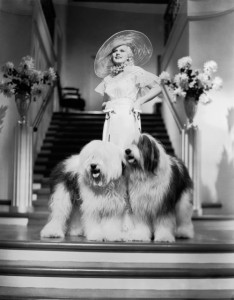

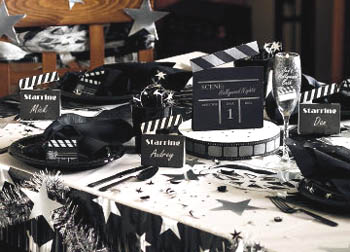
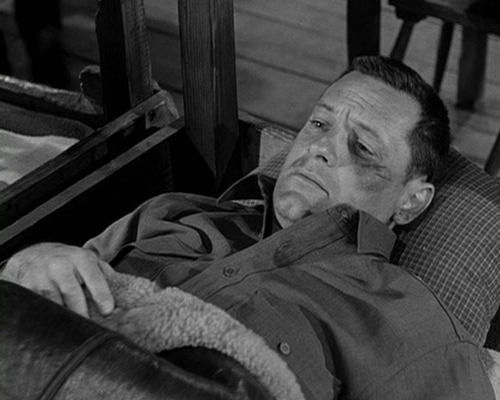
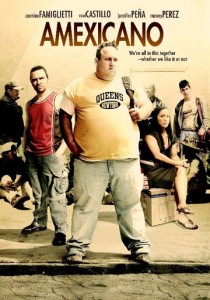
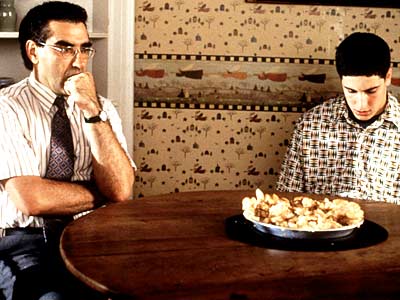
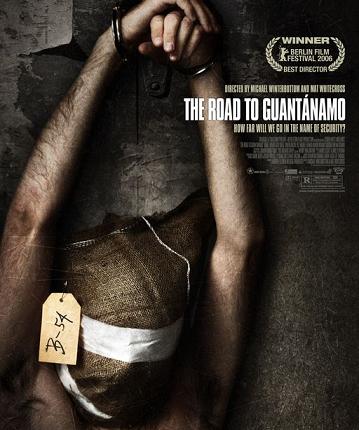
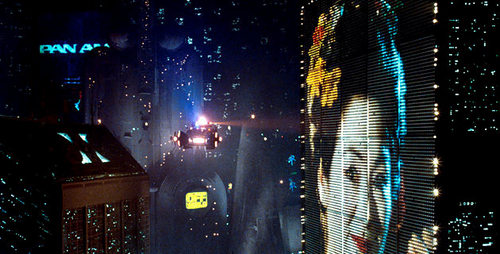
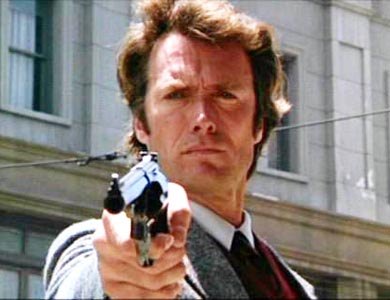
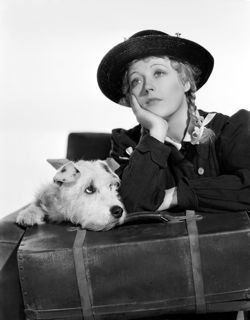
COMMENTS
Please let us know if you're having issues with commenting.